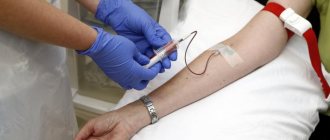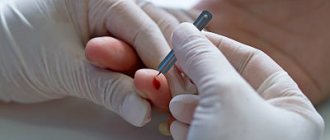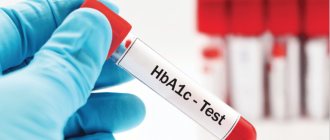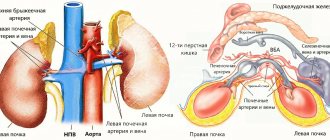Prevention of triglyceride (TG) levels
"Forewarned is forearmed!" or “Beware of troubles while they are gone,” our ancient ancestors teach us. Therefore, instead of “heroically” solving problems with excessively high levels of triglycerides (or low ones) in the future, isn’t it better to immediately protect yourself with competent prevention? Likewise, it’s not particularly wise to step on the same rake twice. That is, having been healed of diseases, one again returns to the “old ruts”, provoking their re-development.
Prevention of normal levels: healthy lifestyle and proper nutrition. Moderate physical activity + control of calories, weight and waist size.
So, how can you protect yourself from the negative effects of “abnormal” triglycerides in the blood? How to keep your health strong for many years? Which means positivity and vitality!
- Do not get carried away with alcoholic beverages (especially beer and wines)!
- Limit the amount of sweet and starchy foods in your diet (and eliminate “store-bought” ones altogether). Instead of “sugary” pastries and cakes, love with all your heart: fresh (sour) fruits, berries (priority: strawberries and blueberries), as well as low-fat yoghurts (from trusted manufacturers).
- Eat exactly - sour fruits, i.e. not loaded with fructose (for example, DO NOT eat a lot of grapes, bananas, melons and peaches). “Lean on” green apples, tangerines and oranges. If you really want sweet fruits, then in quantities of no more than 100 grams. per day.
- Make it a rule (especially if you are over 50): eat fatty sea fish 2 times a week. Which will not only protect you from high triglycerides, but will also reduce the risk of developing cardiovascular diseases by at least 30%!
- Actively develop your own culinary skills, using not only proven products (without harmful “store-bought” additives to increase shelf life), but also healthy “tools” for their preparation. Those. “oven”, grill steamer (with grate) or frying pan (with ANTI/stick coating).
- When preparing homemade meals or dressing salads, buy only the best vegetable oils. Health is more important than anything! The ideal option is olive oil. Eliminate margarines, lard and butter. Beware of products (especially store-bought ones) that contain palm oil!
- Significantly reduce your consumption of meat products such as smoked sausage, bacon, brisket, and sausages or wieners with a high pork content. After all, it’s not for nothing that God considers pork “unclean.” The best option is doctor's sausage! No wonder it's called that!?
- Properly balance the amount of protein in your daily menu. Alternating the amount of animal proteins recommended by doctors with plant proteins (legumes/beans, soy and tofu).
- Try to eat more vegetables (plus wholemeal products), thereby providing your body with enough FIBER. Just drink plenty of water (clean/room temperature).
Why do TG levels matter to doctors?
For doctors, triglycerides (TG) in the blood serum are an indicator of fat (lipid) metabolism, which is extremely necessary (most often) for diagnosing hypertriglyceridemia and other disorders of fat metabolism (lipid metabolism / dyslipoproteinemia). As well as assessing the risks of developing coronary heart disease (CHD), atherosclerosis (in particular, atherosclerotic lesions of the coronary vessels or cerebral vessels).
Plus, determination of triglyceride levels by doctors is used for accurate classification of hyperlipoproteinemia (i.e. for pheno/typing of lipoproteins) and, accordingly, prescribing adequate treatment (for each pheno/type separately). And also in the diagnosis of obesity, hypertension (high blood pressure), diabetes and pancreatitis. For example, an increased TG content - over 11.2 mmol/l - directly indicates to treating specialists an increased risk of complications of acute pancreatitis.
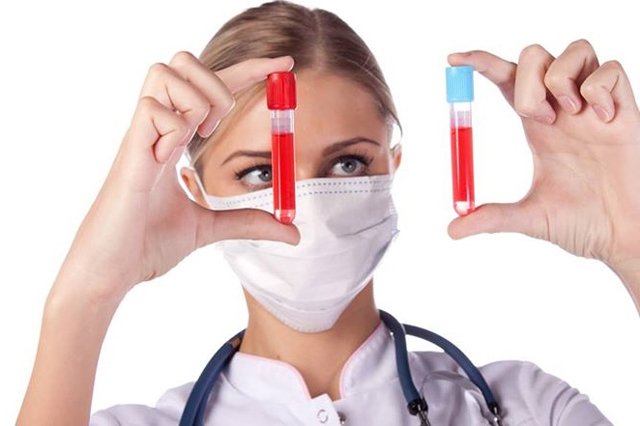
As a rule, the detection of the amount of triglycerides in the blood (using a lipid profile ) is carried out simultaneously with the determination of other (no less important) indicators of lipid metabolism: total cholesterol (TC), LDL ( low density lipoproteins / “bad” cholesterol) and HDL ( lipoproteins high density /good cholesterol). As a rule, laboratory staff immediately calculates the atherogenicity coefficient (index) . You may have a question: why is one of them good and the other bad? We answer immediately - in a way that is easy to understand.
Conventionally, “bad” cholesterol is called LDL (LDL) cholesterol due to the fact that its excess levels contribute to the formation of cholesterol/atherosclerotic plaques (inside the walls of blood vessels / SEE VIDEO AT THE BOTTOM OF THE PAGE - 43 sec
). Which narrow the gaps, interfere with normal blood flow, or can even clog them (over time and without treatment), which can lead to a stroke or heart attack. That is why HDL (HDL) cholesterol is considered “good” - because it takes the excess of the first “prankster fellow” and “transports” them back to the liver (for processing and removal from the body).
Triglycerides (TG) - above normal
High triglycerides (TG) in the blood lipid profile can indicate to doctors the risks of diseases such as atherosclerosis, diabetes mellitus, pancreatitis (chronic or acute / for complications of AP), “fatty liver”, liver cirrhosis, hypertension, coronary heart disease (coronary artery disease) , renal failure (chronic). They also directly indicate a previous myocardial infarction, increased risks of developing cerebral thrombosis, obesity, and gout. In addition, TG levels (much higher than normal) can be observed in people suffering from alcoholism.
We recommend checking out (links below):
- high TG levels - what does this mean, what are the reasons for the increase?
- how to quickly and effectively reduce TG levels in the blood? (detailed material)
- medications that increase cholesterol and triglyceride levels in the blood
- medications (tablets, capsules, injections) to reduce their concentration in the blood
It is definitely worth noting that elevated triglyceride values can be detected specifically in women during pregnancy, during menopause (menopause), after taking birth control pills, or during hormonal therapy (especially while taking oral estrogens). And finally, they point to a purely female disease - PCOS (polycystic ovary syndrome).
Also read about WHAT DO HIGH TRIGLYCERIDES MEAN FOR WOMEN?
Triglycerides and cholesterol - what are the differences and similarities?
Despite the fact that both cholesterol and triglycerides, in essence, are the same lipids (i.e. fats/fat-like substances), their functions are completely different. Although, they are EQUALLY vital/important for us! The main tasks of cholesterol (CS) are to participate in the production of vitamin D, adrenal hormones, sex hormones, as well as ensuring the normal functioning of the brain and immune system (including reliable protection against cancer). In addition, cholesterol forms the sheaths of nerve fibers and is the “protective frame” of the cell membrane. The main task of triglycerides (TG) is to provide our body (partly “built” by the above/mentioned cholesterol) with energy (by burning calories from the “reserve”). That is, to give us the opportunity to live, and when necessary, to effectively “fight for survival.”
Triglycerides (TG) - below normal
What do low triglyceride (TG) levels in the blood mean in women and men? This condition may be caused by simple malnutrition (for example, due to “harmful” diets) or as a side effect after taking certain medications. Even from ascorbic acid (i.e. vitamin C - in large dosages). Also, low triglycerides in a biochemical blood test can be observed in people suffering from hyperthyroidism, COPD (chronic obstructive pulmonary disease), malabsorption syndrome, and hyperparathyroidism. Other reasons for their low levels in the blood serum are recent (surgery), trauma, burns or radiation therapy. Critically low levels “warn” about cerebral infarction.
(Follow the link) in more detail about LOW TRIGLYCERIDES IN THE BLOOD (WHAT DOES THIS MEAN?)
